This website uses cookies so that we can provide you with the best user experience possible. Cookie information is stored in your browser and performs functions such as recognizing you when you return to our website and helping our team to understand which sections of the website you find most interesting and useful.
Led by the U.S. President’s Emergency Plan for AIDS Relief (PEPFAR), DREAMS is a public-private partnership to reduce HIV infections among adolescent girls and young women (AGYW) in sub-Saharan Africa. Through the DREAMS Innovation Challenge, managed by JSI Research & Training Institute, Inc., PEPFAR funded 46 grantees to implement programs across six focus areas. The goal: to meet the urgent and complex health and social needs of vulnerable AGYW.
Overarching Impact
Over two years (2016-2018), the DREAMS Innovation Challenge touched the lives of more than 160,000 AGYW between the ages of 10 and 24. Of the total beneficiaries, 143,700 females as well as 13,142 males were reached with evidence-based interventions encouraging them to adopt HIV-prevention behaviors and access services.
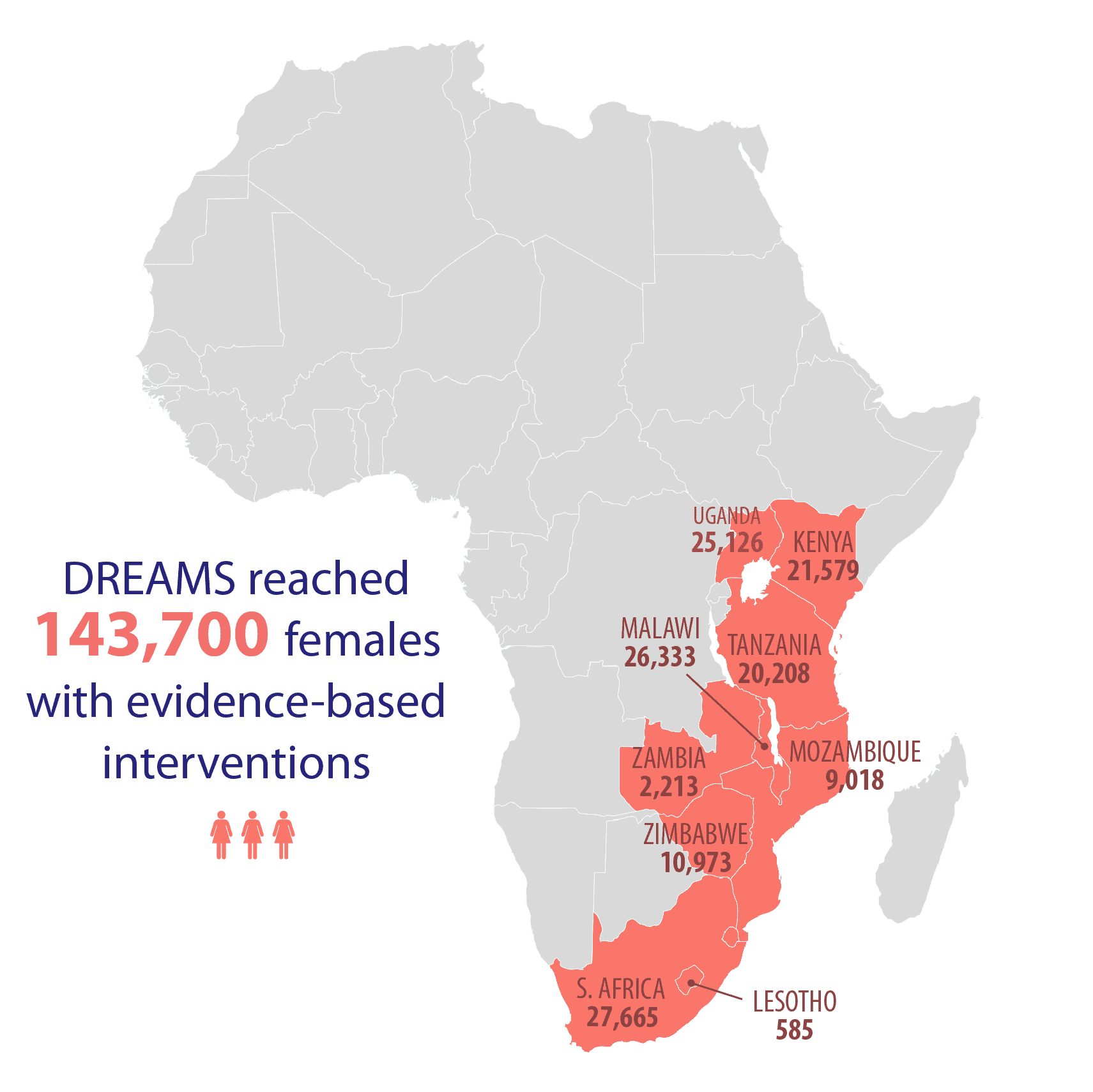
Through the DREAMS Innovation Challenge, 89,777 females and 10,448 males received HIV tests and results.
Moreover, 21,703 orphans and vulnerable children affected by HIV— and their family members— were supported with services to reduce their vulnerability to HIV.
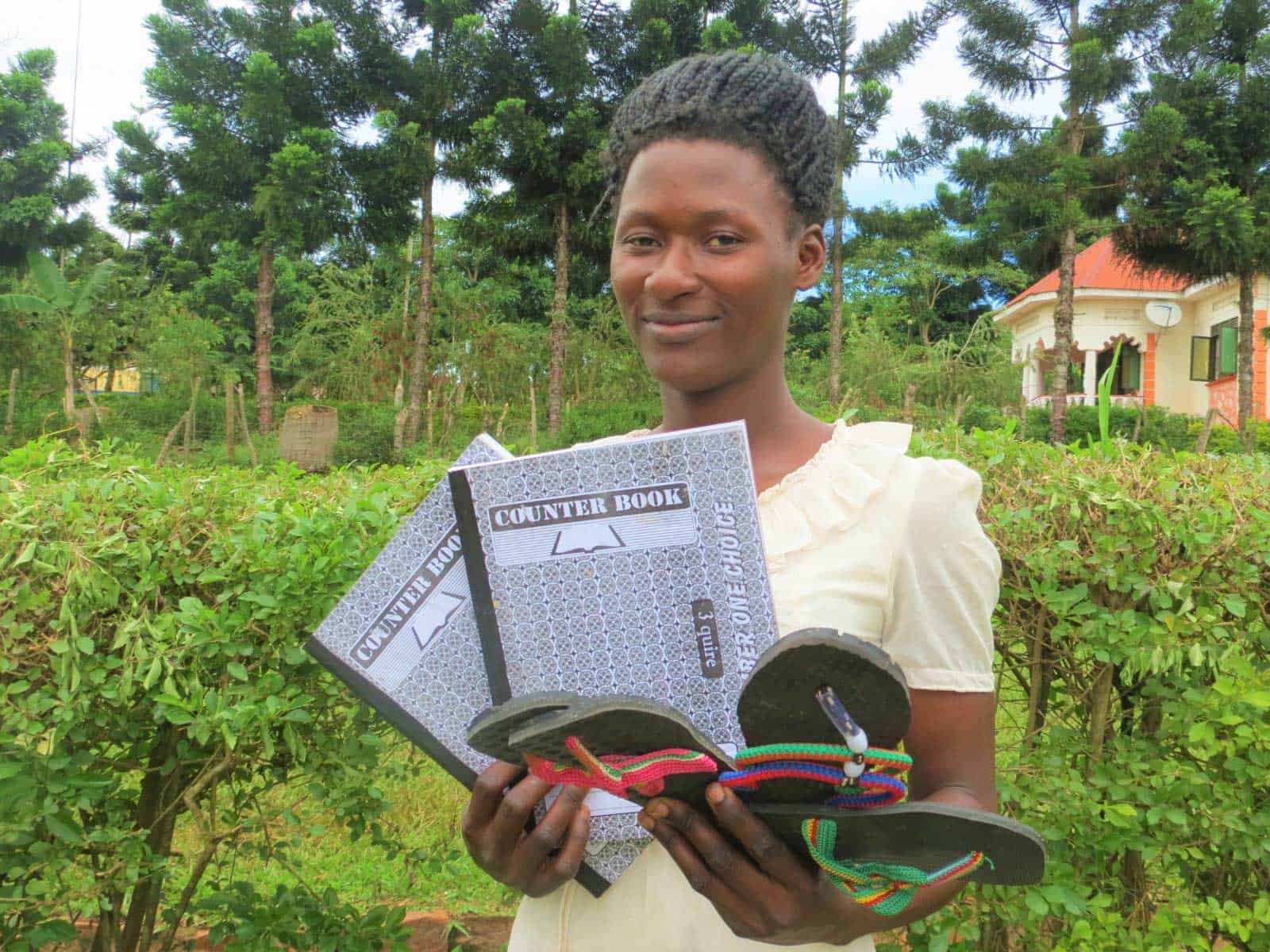
Focus Area 1: Strengthening Capacity for Service Delivery
Six grantees focused on strengthening the ability of grassroots organizations to deliver HIV prevention services to AGYW.
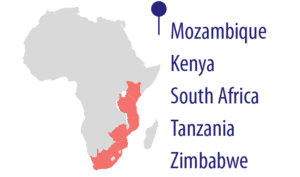
Photo: Lambert Coleman/ Hans Lucas
“Before going to safe space [peer education sessions discussing HIV prevention and sexual and reproductive health], if my mum was saying something to me, I could have been very rebellious.”
-Irene, age 22, beneficiary of ICS Africa, Kenya
Photo: Lambert Coleman/ Hans Lucas
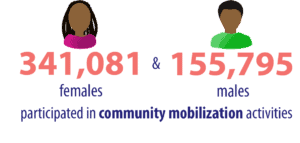
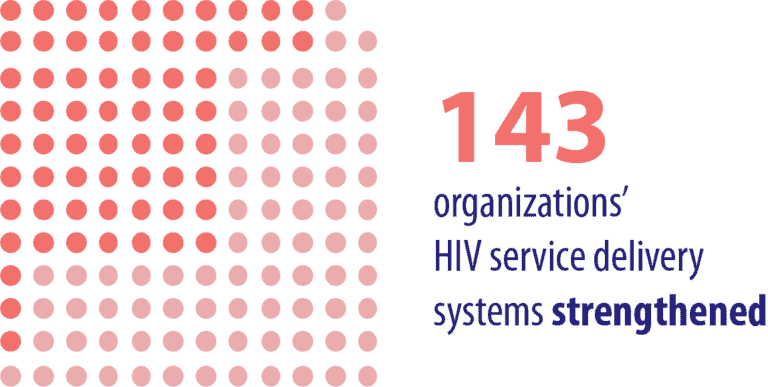
Grantee Example
HIVSA’s project in South Africa set up Choma DREAMS Cafés— internet-enabled shipping containers repurposed as girl-friendly safe spaces offering HIV-prevention education, information, and empowerment— at 40 grassroots organizations and schools.
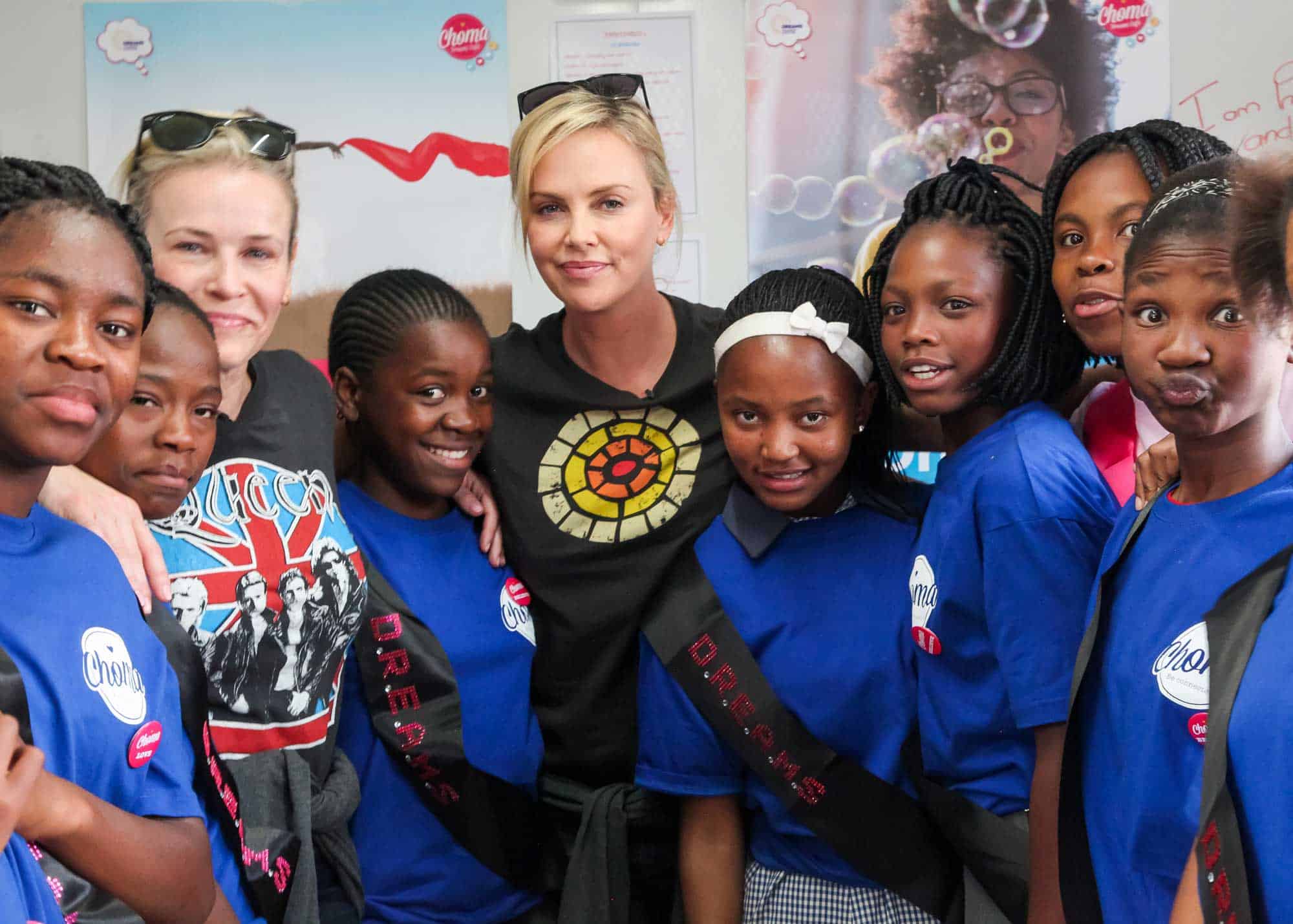
CHELSEA HANDLER AND CHARLIZE THERON VISIT A GROUP OF DREAMS CHALLENGE BENEFICIARIES. PHOTO: CHARLIZE THERON AFRICA OUTREACH PROJECT
Focus Area 2: Keeping Girls in Secondary School
19 grantees focused on ensuring girls’ transition and access to secondary school education and addressing underlying challenges to retention. School engagement has been associated with lower rates of HIV acquisition.
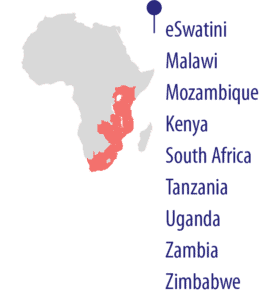
Photo: Lambert Coleman/ Hans Lucas
“Now I know how to read very well, and I can understand things. [Even] if you don’t have any parents…it’s not the end of the world. Things will get better.”
-Rachel, age 19, beneficiary of Hope worldwide Zambia
Photo: Lambert Coleman/ Hans Lucas
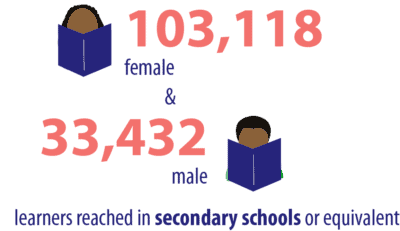
Grantee Example
In eSwatini, Tanzania, and Zimbabwe, World Education, Inc./Bantwana Initiative reached 6,784 in-school girls and out-of-school teen mothers with clubs and non-formal education and mentoring to build their protective and social assets to remain in school, help them pass national exams, teach them life skills, and provide them with early childhood stimulation techniques. They also identified and gave AGYW who were at risk of dropping out financial assistance and services to help them stay in school.
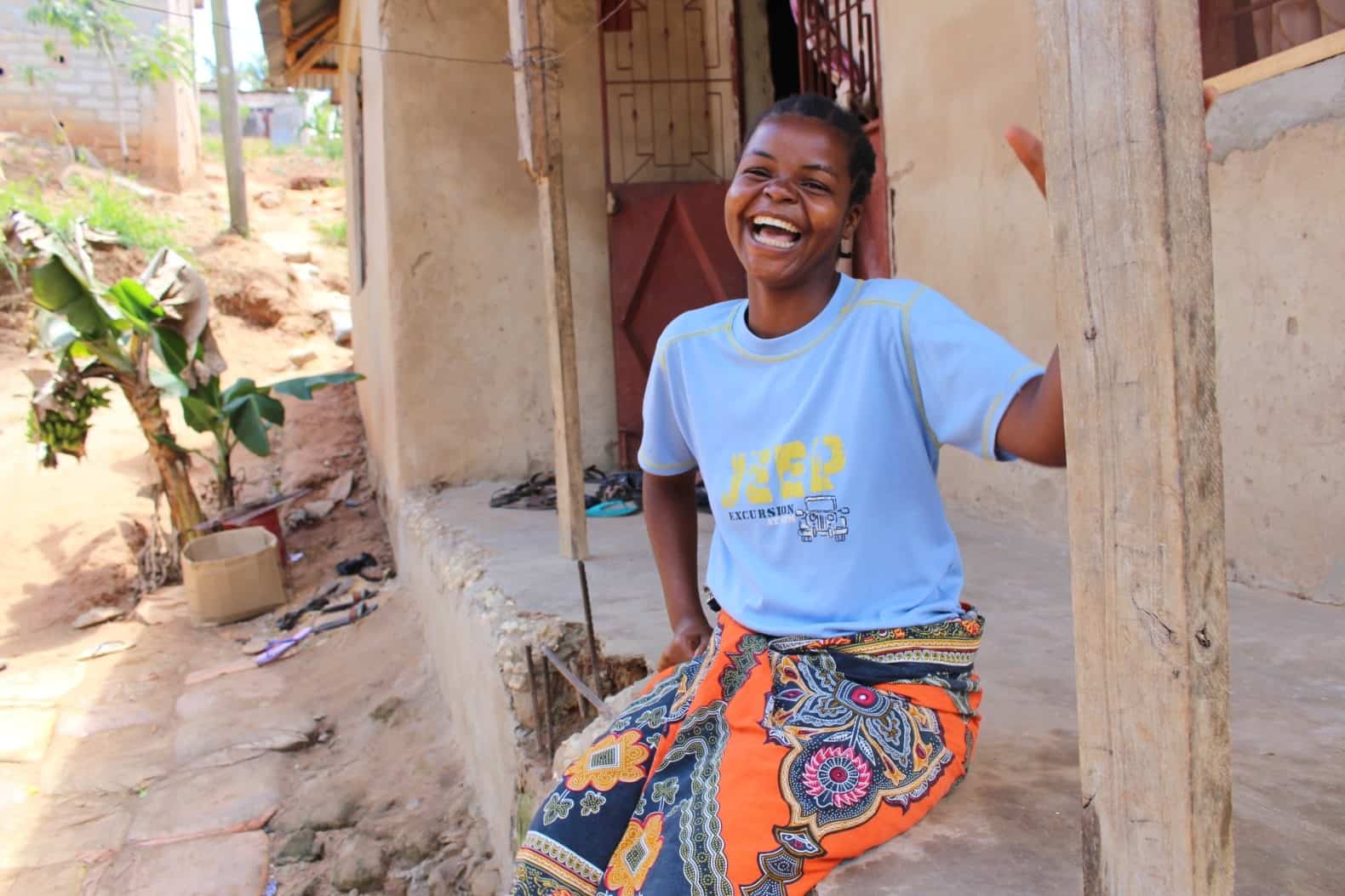
PHOTO: WORLD EDUCATION, INC./ BANTWANA INITATIVE
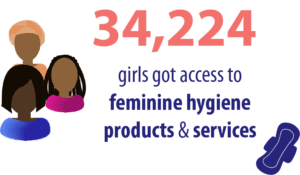
Focus Area 3: Linking Men to Services
Four grantees pioneered new ways to link boys and young men to HIV testing and counseling, treatment, and voluntary medical male circumcision services.
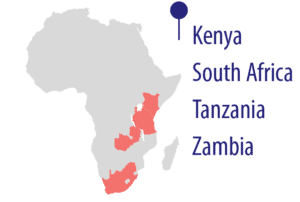
Photo: Lambert Coleman/ Hans Lucas
“I found people testing here, so I thought I should make a step about [learning] my own status. I now know my HIV status and different HIV-prevention methods.”
-Ronald, age 22, beneficiary of Afya Mzuri, Zambia
Photo: Lambert Coleman/ Hans Lucas
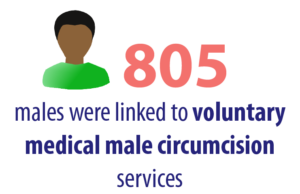
Grantee Example
All participated in TackleAfrica’s program, which trained 40 football coaches to conduct HIV-prevention talks with their teams and provided opportunities for voluntary HIV testing services at practices and games.
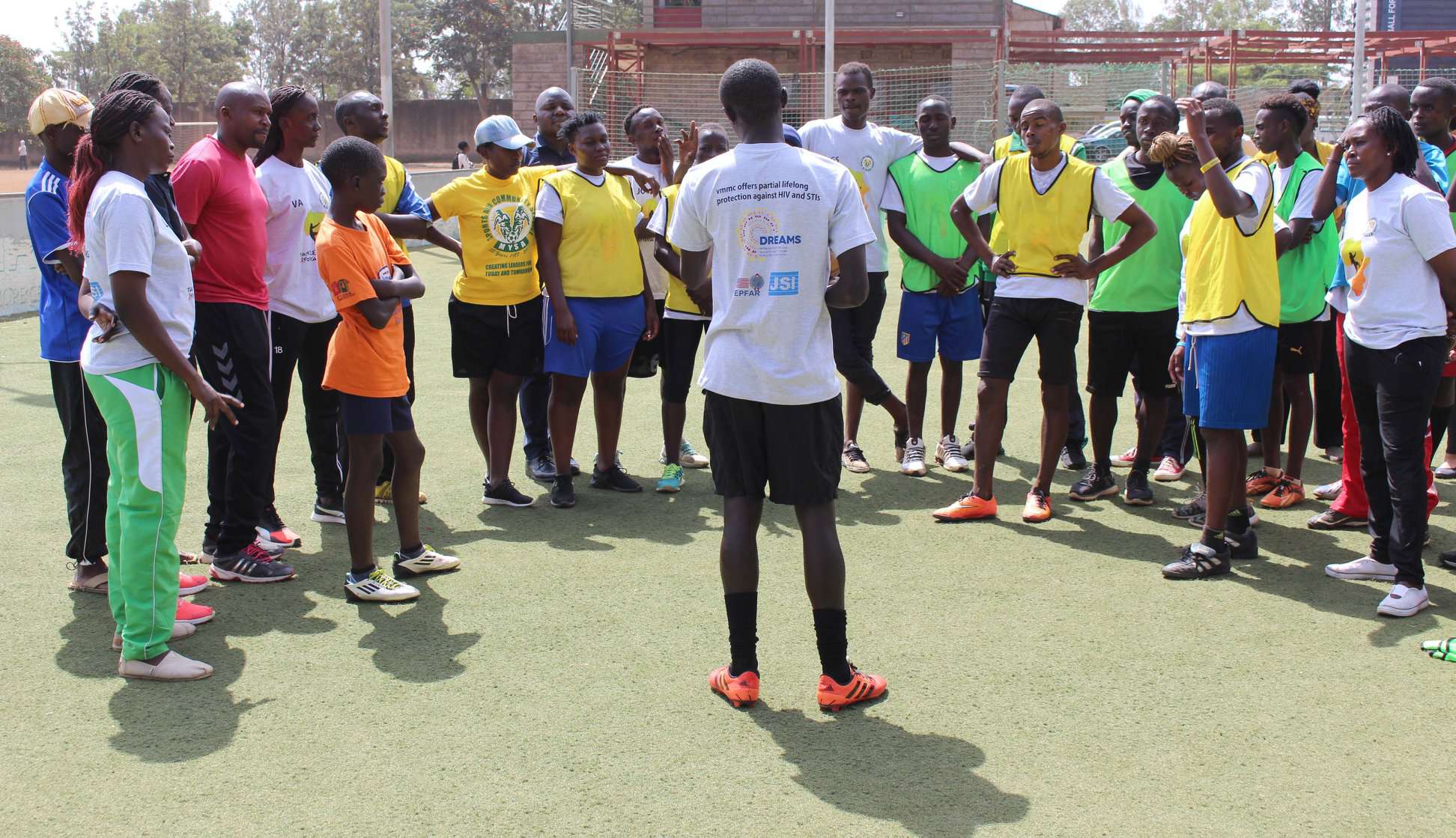
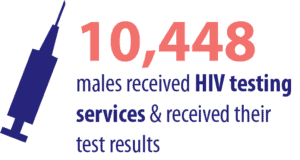
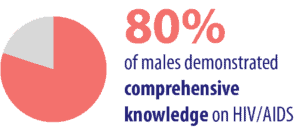
Focus Area 4: Supporting Pre-Exposure Prophylaxis (PrEP)
Eight grantees focused on supporting education for and provision of PrEP by identifying AGYW appropriate for PrEP initiation and supporting their adherence. PrEP is a daily medication regimen proven to dramatically reduce the risk of HIV infection.
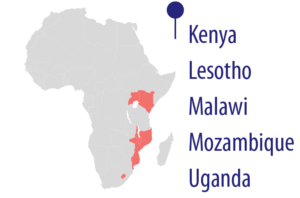
Photo: Lambert Coleman/ Hans Lucas
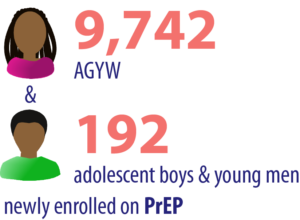
Grantee Example
Bar Hostess Empowerment & Support Programme in Kenya reached 20,353 AGYW with PrEP information via community mobilization activities. Of the 4,957 who enrolled, 60% actively continued PrEP for at least three months.
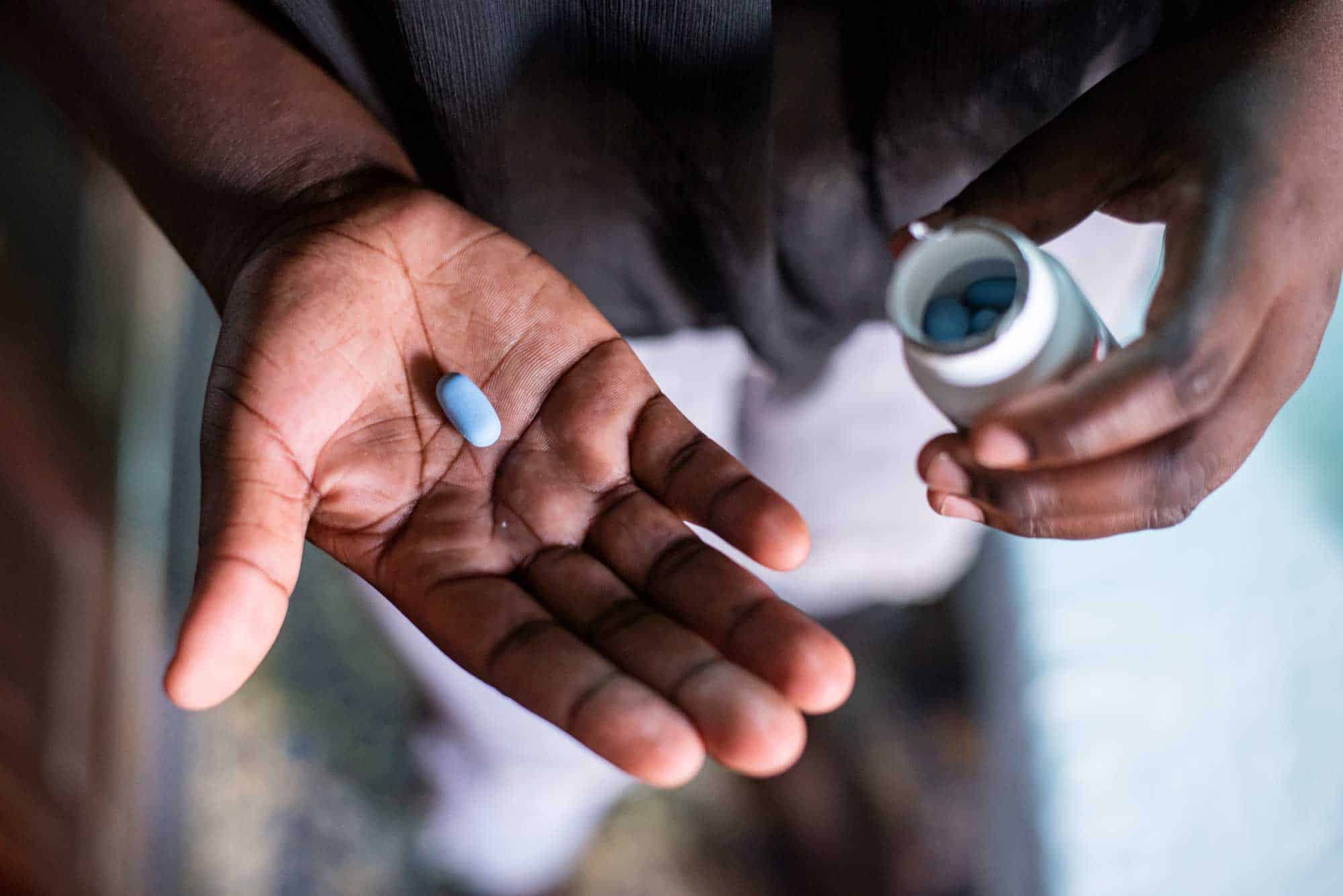
Focus Area 5: Bridge to Employment
Six grantees focused on providing a post-secondary school bridge to employment for young women (ages 19–24) to decrease their risk of transactional sex and HIV transmission.
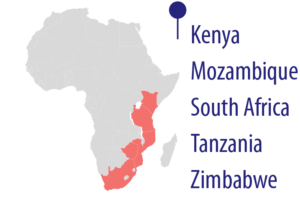
Photo: Lambert Coleman/ Hans Lucas
“At the training [to become a motor vehicle mechanic], there were only three girls. The rest were men, which made it challenging. The men believed that we weren’t good enough. Therefore, I decided to show them that I can do better than them. Now that I have experience with lots of different cars, I am confident that I will always find a job.”
-Ann, age 24, beneficiary of the African Centre for Women, Information, and Communications Technology’s DREAMS Innovation Challenge project, Nairobi, Kenya
Photo: Lambert Coleman/ Hans Lucas
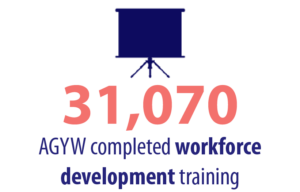
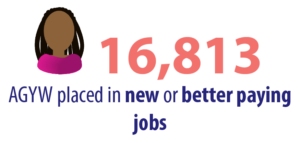
Grantee Example
Through Save the Children’s project, 3,222 AGYW built transferable life skills (e.g., positive identity, HIV prevention); entrepreneurial and employability skills (e.g., communication, job searching); and hard skills (e.g., carpentry, farming, welding). 2,090 (65% of those trained) obtained new or better paying jobs.
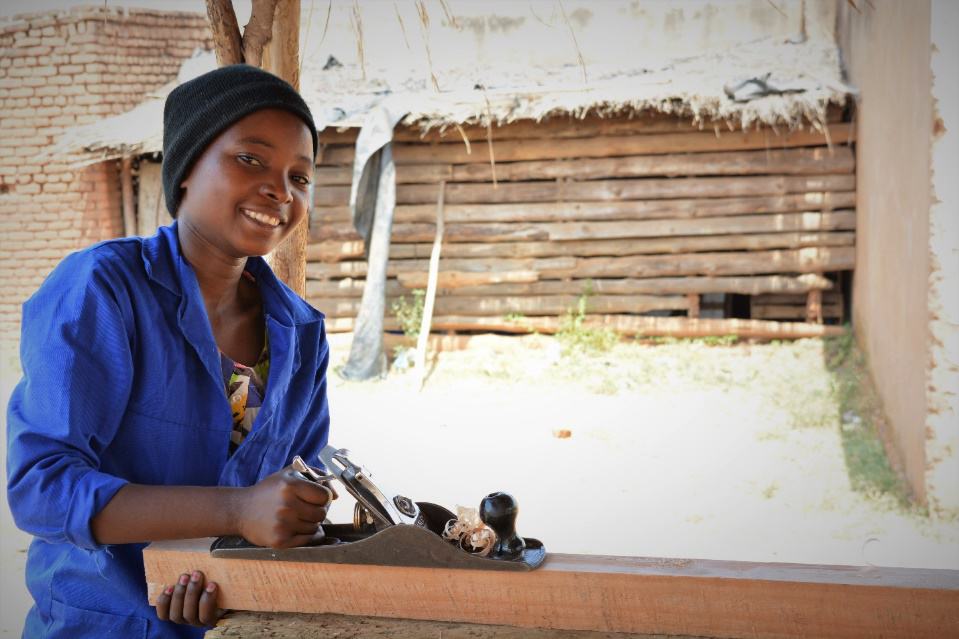
PHOTO: SAVE THE CHILDREN
Focus Area 6: Applying Data to Increase Impact
Four grantees focused on increasing the availability and use of data to inform policies to prevent HIV transmission among AGYW and increase program efficacy.
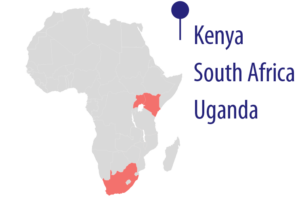
Photo: Lambert Coleman/ Hans Lucas
“When I found out my HIV status, I was surprised and very upset…A few months later, I was introduced to Premise and joined its WhatsApp group and found other people my age who were facing the same struggles. The project encourages us to be more confident. Because of DREAMS, I have no stigma in my life.”
-Evelyne, age 21, beneficiary of Premise Data Corporation, Kenya
Photo: Lambert Coleman/ Hans Lucas
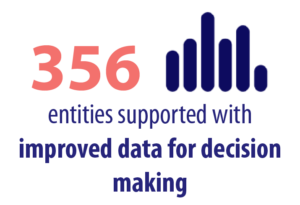
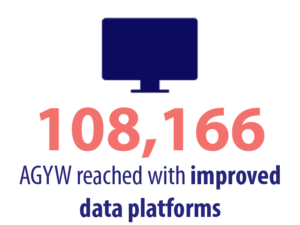
Grantee Example
AidData at College of William & Mary partnered with Zambia’s National HIV/AIDS/STI/TB Council to upgrade its national management information system. The system now provides government and implementing partners with information to help them allocate resources and deliver HIV-prevention and treatment services to vulnerable AGYW.
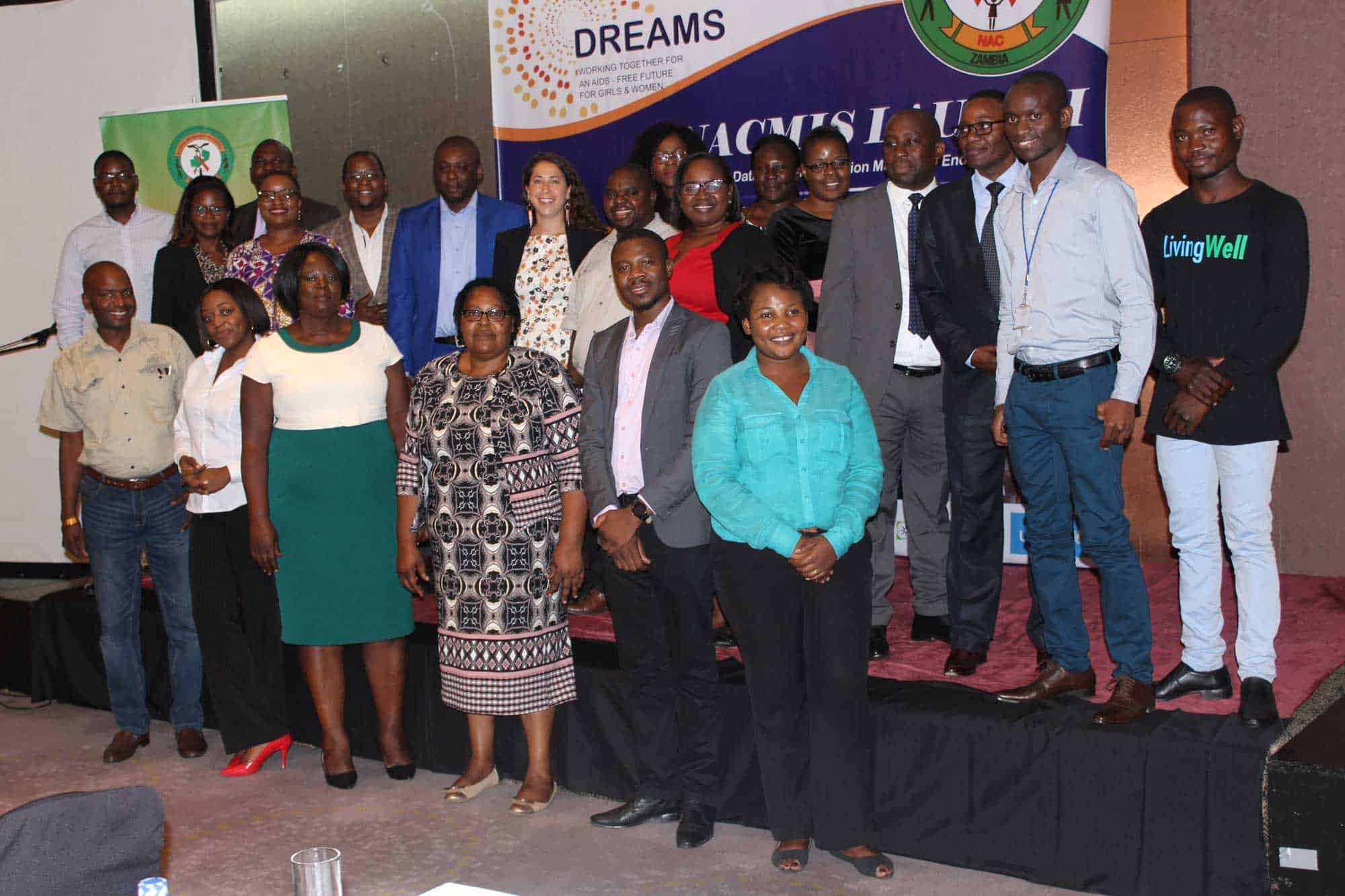
PHOTO: COLLEGE OF WILLIAM AND MARY
Legacy of DREAMS Innovation Challenge
Heightened commitment to equitable gender norms
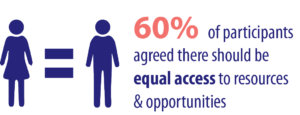
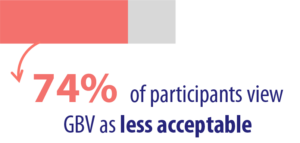
Photo: Lambert Coleman/Hans Lucas
Improved ability to mobilize resources for sustainability
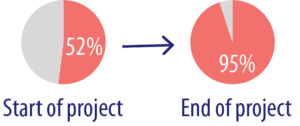
At least 95% of active grantees by the end of the project had up-to-date resource mobilization plans in place, compared to 52% at the beginning of the project.
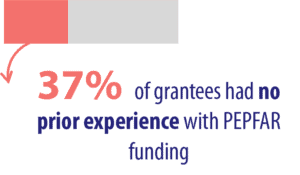
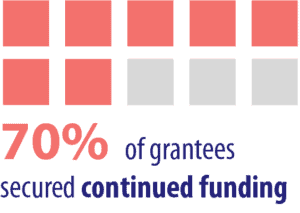
Photo: Lambert Coleman/Hans Lucas
Improved organizational development and strong institutional systems
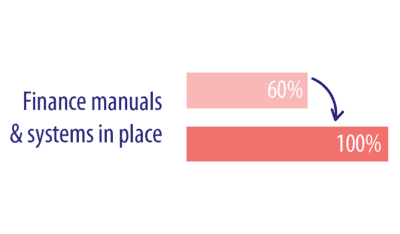
All grantees assessed now have finance manuals, internal controls, and other systems for auditable financial management (compared to 60% when the project began).
All grantees assessed now have human resource (HR) manuals complete with job descriptions to systematize management procedure (compared to 68% with HR manuals and 48% with job descriptions at the start of the project).
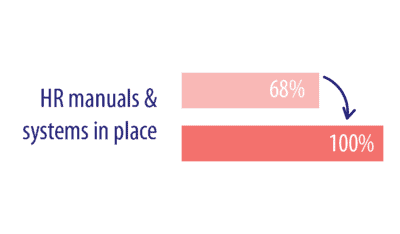
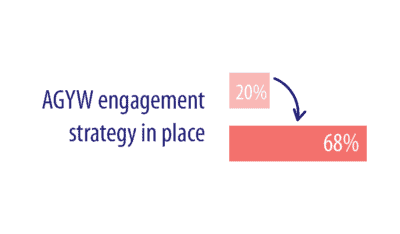
68% of grantees assessed now have an AGYW engagement strategy (compared to 20% at the start of the project).
96% of grantees assessed have a gender policy now (compared to 16% at the start of the project).
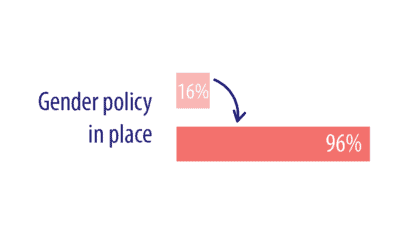
Note: JSI served as Funds Manager for 46 DREAMS Innovation Challenge grantees that were funded by PEPFAR, administering the awards, monitoring and supporting implementation and grants management, and providing capacity building and technical support.
Header photo: World Vision

